
Ingredient
Vitamin B7 (biotin)
The Beauty Vitamin: Unveiling the Wonders of Biotin
Biotin is a water-soluble vitamin that belongs to the B-complex family. It is a small, colorless compound with a crystalline structure. In its pure form, biotin appears as a powder or fine crystals. It is odorless and tasteless, making it an ideal ingredient for culinary applications. Biotin is highly stable and can withstand high temperatures without losing its nutritional value. It dissolves easily in water and is readily absorbed by the body. This vitamin is known for its ability to improve the strength and elasticity of hair, skin, and nails, making it a popular choice in beauty and wellness products.
Origins and history
Biotin was first discovered in 1927 by the Hungarian scientist Paul Gyorgy. It was initially referred to as Vitamin H, derived from the German words "Haar" and "Haut," meaning hair and skin, respectively. Later, it was renamed Vitamin B7 to align with the B-complex family. Biotin is naturally present in a wide range of foods, including eggs, nuts, seeds, and certain vegetables. It is also produced by the beneficial bacteria in our gut. Throughout history, biotin-rich foods have been consumed for their health benefits, particularly in promoting healthy hair and skin.
Nutritional information
Biotin is an essential nutrient that supports various bodily functions. It aids in the metabolism of carbohydrates, fats, and proteins, providing energy for the body. Biotin also plays a crucial role in maintaining healthy skin, hair, and nails. A single serving of biotin-rich foods can provide approximately 30-40 micrograms of biotin, contributing to the recommended daily intake of this vitamin.
Allergens
Biotin is not known to cause any allergic reactions and is generally considered safe for consumption by most individuals.
How to select
When purchasing biotin-rich foods, such as eggs or nuts, choose fresh and high-quality products. For eggs, look for those with intact shells and check the expiration date. When buying nuts, ensure they are free from any signs of mold or rancidity. Opt for organic options whenever possible to minimize exposure to pesticides or other chemicals.
Storage recommendations
To maintain the freshness and quality of biotin-rich foods, store them properly. Eggs should be refrigerated at temperatures below 40°F (4°C) and consumed within their expiration date. Nuts should be stored in a cool, dry place, preferably in an airtight container, to prevent them from becoming rancid.
How to produce
Biotin is not typically produced at home as it is a naturally occurring vitamin found in various foods. However, individuals can ensure an adequate intake of biotin by incorporating biotin-rich foods into their diet or by taking biotin supplements under the guidance of a healthcare professional.
Preparation tips
Biotin-rich foods can be incorporated into a variety of dishes. Eggs can be boiled, scrambled, or used in baking. Nuts can be enjoyed as a snack, added to salads, or used as a topping for various dishes. To maximize the absorption of biotin, it is recommended to consume biotin-rich foods with a source of healthy fats, such as avocado or olive oil.
Culinary uses
Biotin is commonly used in the culinary world to enhance the texture and appearance of dishes. It is often added to baked goods, such as bread or pastries, to improve their structure and promote a golden crust. Biotin can also be used as a natural food coloring agent, providing a vibrant hue to certain dishes or desserts.
Availability
Biotin-rich foods, such as eggs and nuts, are commonly available in grocery stores and supermarkets worldwide. Biotin supplements are also widely available over-the-counter or through healthcare professionals.
More ingredients from this category » Browse all
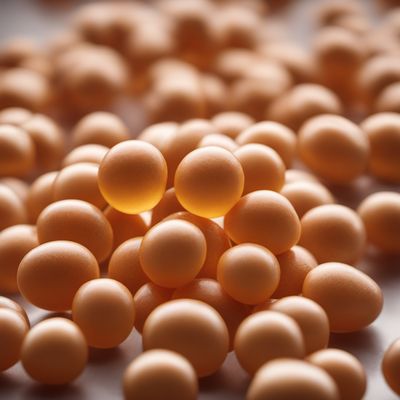
Vitamin B6 (pyridoxine, pyridoxamine, pyridoxal)
The Essential Nutrient Trio: Unveiling the Powers of Vitamin B6
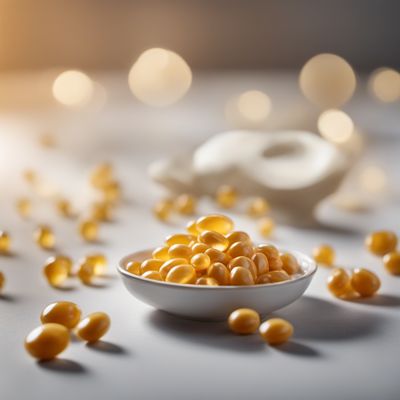
Vitamin D (cholecalciferol, ergocalciferol)
"The Sunshine Vitamin: Unlocking the Power of Vitamin D"
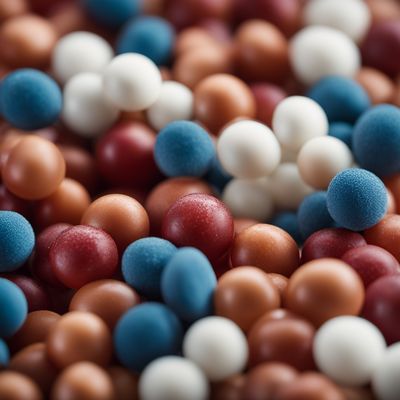
Vitamin B12 (cyanocobalamin, hydroxocobalamin, methylcobalamin)
The Essential Vitamin: Unveiling the Power of B12
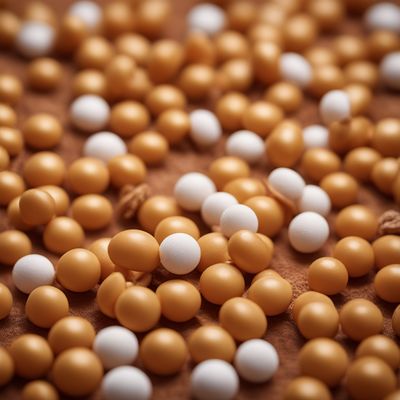
Vitamin B1 (thiamine)
The Essential Energy Booster
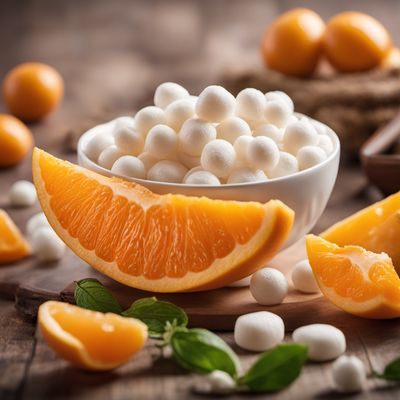
Vitamin C (ascorbic acid)
The Immunity Booster: Unveiling the Power of Vitamin C

Vitamin B3 (niacin, niacinamide)
The Essential Nutrient: Unveiling the Power of Vitamin B3
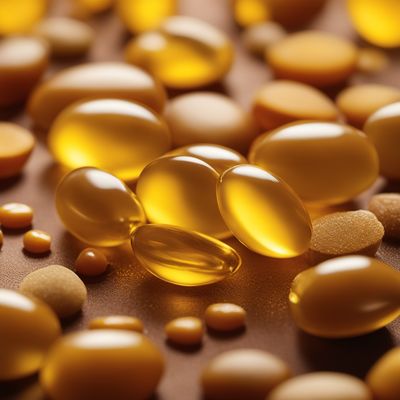
Vitamin E (tocopherols, tocotrienols)
The Antioxidant Powerhouse
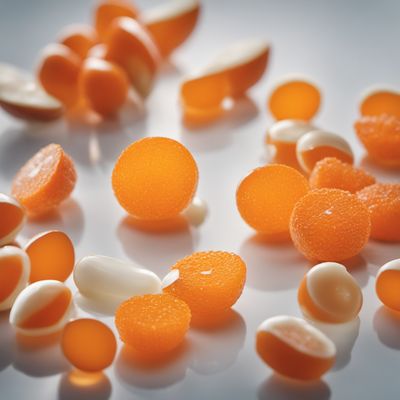
Vitamin A (retinol, carotenoids)
The Vision Booster
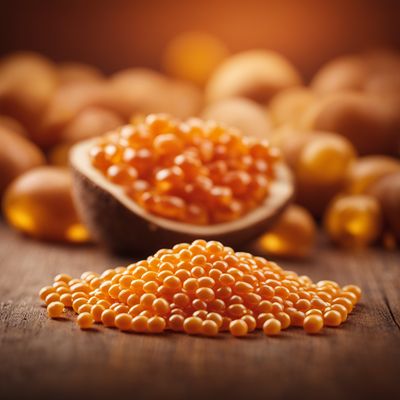
Vitamin B2 (riboflavin)
The Radiant Nutrient
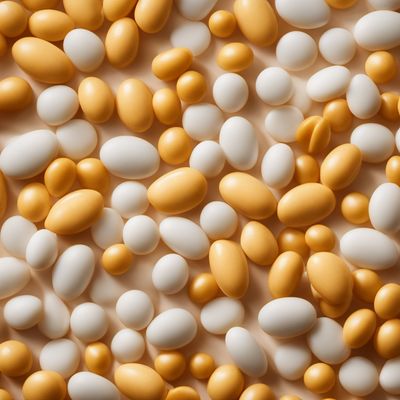
Vitamin B9 (folic acid, folinic acid)
The Essential Nutrient for Cell Growth and Development

Vitamin K (phylloquinone, menaquinones)
The Mighty Nutrient: Unveiling the Power of Vitamin K
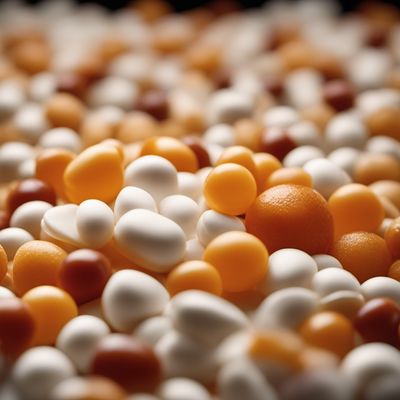
Vitamin B5 (pantothenic acid)
The Essential Nutrient: Unveiling the Power of Vitamin B5